
Features
In a video that is slowly becoming viral, a crowd is gathered around the lady and she is seen giving unintelligible responses to the questions from people gathered around her.
She mentioned in a dramatic way that she is from Ogbomoso and currently a student of LAUTECH.
The lady seemed disoriented as she was looking around like she was looking for something or someone.
At one point, she went and knelt before a man who grabbed her head, as though he wanted to cast out a demon.
The lady also mentioned something about being raped.
There are speculations that the lady was under the influence of drugs, not mentally unstable.
See the video below,
TB Joshua, founder of the Synagogue Church of All Nations (SCOAN), has sparked a plethora of reactions on social media following his visit to a mountain to pray against the COVID-19 crisis.
The clergyman took to his Twitter page on Tuesday to share video of himself asking God to forgive the sins of the world and heal it from the pandemic.
“In the name of Jesus, we present the nations of the world to you, lord. Forgive their iniquities. Forgive them their wrongs. There is a cure in the blood of Jesus,” he can be heard praying.
“Heal the world, heal them of the fear of COVID-19. You’re the great help, the very help in times of trouble. Now is the time.
Joshua’s actions have provoked different reactions on social media platforms especially Twitter where users are registering their differing opinions.
“To be honest, TB Joshua has been the most concerned pastor during this pandemic. He might be getting it all wrong but I still appreciate the effort. He first made an effort at predicting the end. Now he has made an effort to seek divine help through indefinite fasting,” a user wrote.
“Maybe TB Joshua is lying or not is not my business my own problem is why did he now did a photoshoot to upload on social media,” another user said.
Nigerians have taken to Twitter to react to the photos with some of them claiming the man of God is stylishly self isolating.



Watch video below...
"We ask for fresh anointing to fill every minister of the Gospel. Fill them, LORD! Fill them for the journey! Without anointing, no one can do Your work. Without anointing, our challenges will overwhelm us, overpower us." - TB Joshua pic.twitter.com/PpeCxStTfM
— TB Joshua (@SCOANTBJoshua) April 28, 2020
A woman has narrated how she went from being a single mother with two kids, to becoming a side chic and then a wife.
She told of how she was praying to God to send her a man when she was a single mother. Eventually, her husband met her and insisted that she was the one for him.

She went on to become his side chic even though he had a "wife as a co-tenant". From there, she became his girlfriend and is now the man's wife.

She shared her story while taking part in the wife VS side chic challenge.
She shared a photo collage showing her as a single mother, then as a side chic praying that the man, named Larry, will make her his wife "above all the other babes" around him. Another shows her as a girlfriend when said she began "slaying" more then ever so that her man will not drop her. Now that she's his wife, she said she is slaying "hotter than fire."

She revealed that she got the support of her husband and her family before she shared her story.

Read her story below.



A team of researchers from eight institutions in China and the U.S. has offered a fresh insight into why 85 patients died of multiple organ failure after suffering severe COVID-19.
All individuals whose data the team studied received care at either the Hanan Hospital or the Wuhan Union Hospital between January 9 and February 15, 2020.
The researchers came from the Chinese People’s Liberation Army General Hospital in Beijing, and the University of California – Davis and six other institutions.
Their study uncovered a series of factors that the majority of these patients shared.
The study has been published by the American Journal of Respiratory and Critical Care Medicine.
The majority were older males
The research team was able to access and analyze the deceased patients’ medical histories, including whether they had any underlying, chronic conditions.
The researchers were also able to find out what symptoms the patients experienced once they had contracted the virus and access information from laboratory tests and CT scans.
They also accessed information about the medical treatment they received while in the hospitals.
They found that 72.9% of those who died with COVID-19 were male, with a median age of 65.8 years and underlying chronic conditions, such as heart problems or diabetes.
“The greatest number of deaths in our cohort were in males over 50 with noncommunicable chronic diseases,” the investigators note.
They found that 72.9% of those who died with COVID-19 were male, with a median age of 65.8 years and underlying chronic conditions, such as heart problems or diabetes. The greatest number of deaths in our cohort were in males over 50 with noncommunicable chronic diseases,” the investigators note.
“We hope that this study conveys the seriousness of COVID-19 and emphasises the risk groups of males over 50 with chronic comorbid conditions, including hypertension (high blood pressure), coronary heart disease, and diabetes,” they have commented.
The team also notes that, among the 85 patients whose records it analyzed, the most common COVID-19 symptoms were fever, shortness of breath, and fatigue.
Some important observations
In terms of other potentially relevant information, the research team found that 81.2% of the study individuals “had very low eosinophil [a type of white blood cells, which are specialized immune cells that help fight infection] counts on admission.
Among the complications that the patients experienced while hospitalised with COVID-19, some of the most common were respiratory failure, shock, acute respiratory distress syndrome, and cardiac arrhythmia, or irregular heartbeat.
As part of their treatment, the majority received antibiotics, antivirals, and glucocorticoids, and some received intravenous immunoglobulins (also known as antibodies), or interferon alpha-2b, which is also a stimulant for the immune response.
Yet, the researchers note, “the effectiveness of medications, such as antivirals or immunosuppressive agents, against COVID-19 is not completely known.”
Based on their observations, the authors indicate that treatments, including combinations of antimicrobial drugs, did not appear to have much of a positive effect.
“Perhaps our most significant observation is that while respiratory symptoms may not develop until a week after presentation, once they do there can be a rapid decline, as indicated by the short duration between time of admission and death (6.35 days on average) in our study,” they write.
They also suggest that having abnormally low levels of eosinophils — a condition known as eosinophilopenia — may correlate with a greater risk of severe outcomes in people who have contracted SARS-CoV-2.
While they hope that their current findings may help other doctors better understand and prepare for fighting COVID-19, the researchers nevertheless urge the global scientific community to keep on recording all possible information about people receiving care for this new illness.
“Our study, which investigated patients from Wuhan, China, who died in the early phases of this pandemic, identified certain characteristics,” the researchers say, yet as “the disease has spread to other regions, the observations from these areas may be the same, or different.”
They continue: “Genetics may play a role in the response to the infection, and the course of the pandemic may change as the virus mutates, as well.
“Since this is a new pandemic that is constantly shifting, we think the medical community needs to keep an open mind as more and more studies are conducted.”
Few hours after a lady shared a video she made of a trader soaking mango inside gutter water before selling to people in the Agungi area of Lagos state, authorities stormed the area to arrest to supposed trader(s) who indulged in such act.
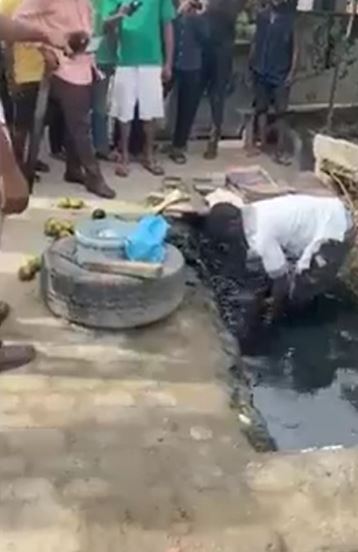
In a recent development, possibly after interrogating the suspects, another video now shows the moment the trader brings out the fruits that were stored in the dirty drainage system in the same area.
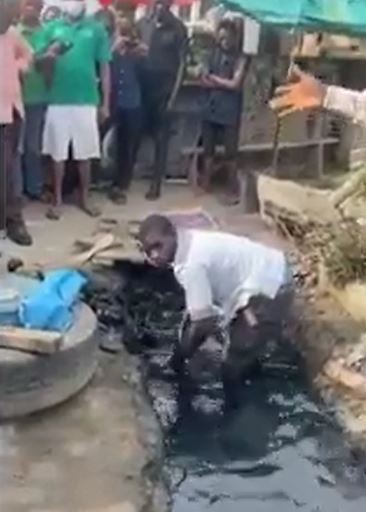
The lady who had initially shared the video after she caught the perpetrators had stated the exact location of the traders and moments later, it was reported that the trader(s) had been arrested over the discovery.
In the new video that’s been making the rounds, an aboki is seen in the same exact location bringing out mango fruits from the dirty gutter as people stood by and watched in utter shock.
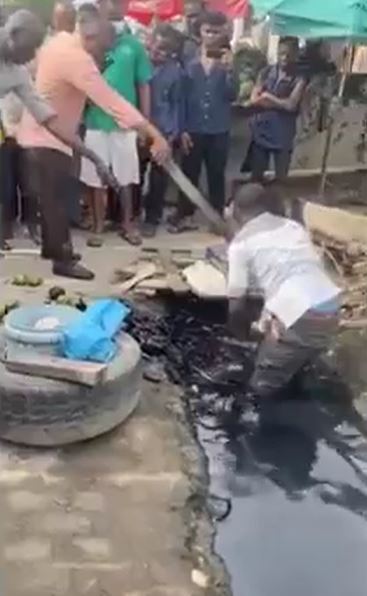
The video has caused Nigerians to be watchful of the street food they buy from these peoples as majority of them practice no form of hygiene and even indulge in despicable acts that’s detrimental to the health of their customers.
Watch the video that has been making the rounds below,
- Moment a trader was ordered to pick out all fruits he kept inside gutter water for preservation before selling to buyers in Agungi, Lekki.
— Postsubman (@Postsubman) March 28, 2020
pic.twitter.com/n4dMRt5EIu
Pastor Mathew Ashimolowo of Kingsway International Christian Centre has directed his members on how to pay their tithes and offerings online from their home over the coronavirus pandemic currently ravaging the world.
The UK based Nigerian pastor stated this in a viral video on social media after the United Kingdom banned public gatherings of more than two people.
Prime Minister Boris Johnson placed the UK on lockdown to tackle the coronavirus, to be enforced by police.
However, Nigerian pastor, Ashimolowo amidst the lockdown called on his church members to pay tithes and offering.
“For those of you who don’t know how to pay offerings online, go to our platforms and start paying your offerings online,” he said.
#coronavirus Don't forget to drop your offerings online, Pastor Mathew Ashimolowo of KICC to followers as UK shuts down public gatherings over #COVID19 pic.twitter.com/VPmGtkfHaP
— Kayode Ogundamisi (@ogundamisi) March 24, 2020
The Nigerian man accused by porn star, Annie Blonde of sending N7 instead of N7000 after a threesome phone sex, has opened up on what allegedly transpired between them.
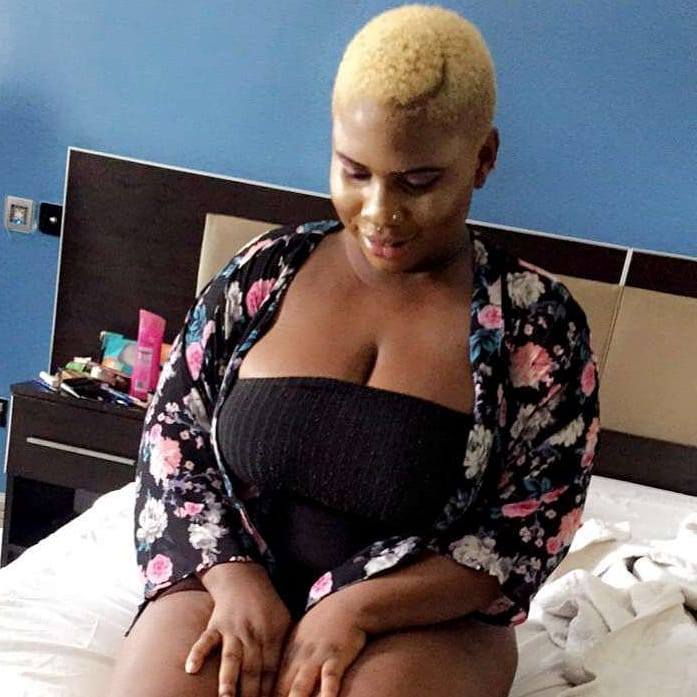
According to Nigerian man, the porn star decided to shame him online after he refused giving her the money she begged for.
He also debunked Annie Blonde’s claim of them meeting for the first time on the day of the incident. The Nigerian man said that they met on Snapchat and contrary to the claim, he didn’t have any video sex with her.
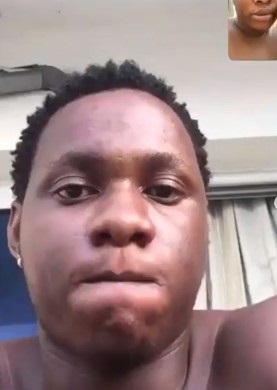
Here are chats he sent in to back his claim;
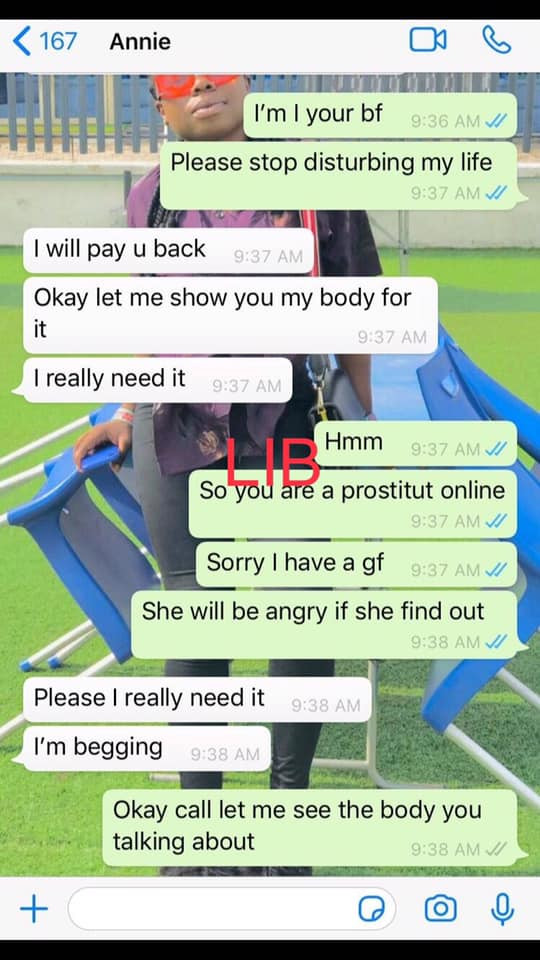
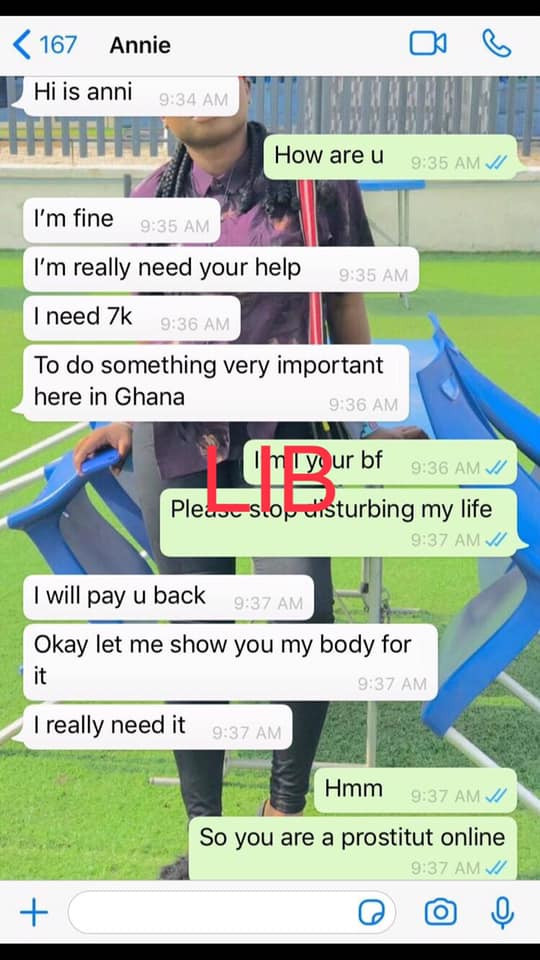



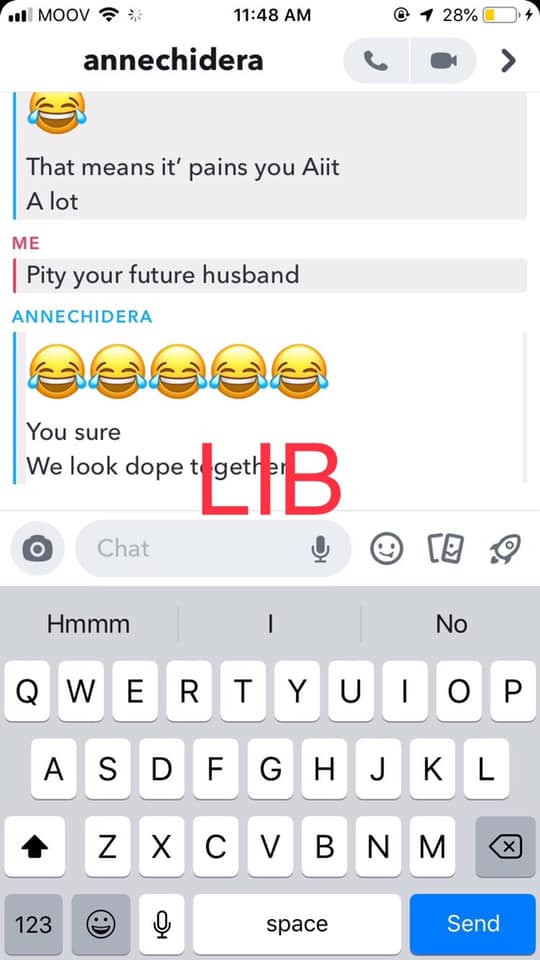



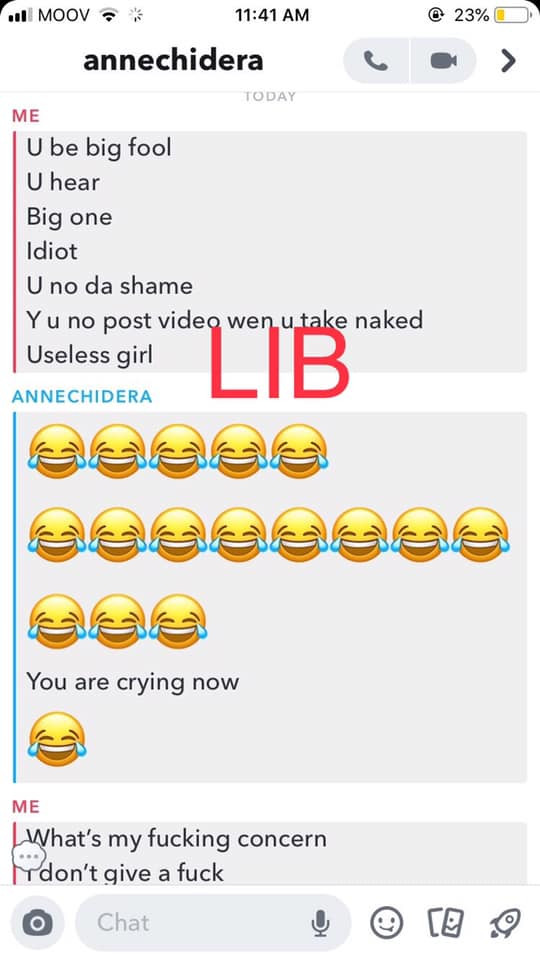
Nigerian Pastor T.B. Joshua, on Tuesday, declared that coronavirus, which has caused worldwide panic will vanish before the end of March 2020.
“The noise of coronavirus would be silenced before the end of March 2020”, T.B Joshua said.
The cleric, however, warned that the effect will be felt worldwide throughout the rest of the year.
T.B. Joshua made the statements while answering several questions related to the coronavirus outbreak on his official Facebook Page.
He described the unprecedented situation as a “test of faith”, which Jesus Christ hinted at in his prayer that Simon Peter’s faith would not fail.
TB Joshua said he didn’t see anything to panic about as God’s promise for believers would be for them to overcome.
“Real faith thrives on a test. If there was nothing serious in the past to test our faith, here is something to test our faith in a unique way – a real situation”
“I say again, it is the remnants we are seeing. The real coronavirus is gone. But what the coronavirus has caused – economic backlash, fear – will linger until the end of the year,” he predicted.
TB Joshua also commented on the fear that has envelopes many nations due to coronavirus.
Yahaya Bello, governor of Kogi state, has announced the death of his mother, Hauwau Oziohu.
In a statement on Monday, Bello said his mother died at the age of 101 after a brief illness.
Bello, who is said to be the youngest of six children, was born on June 18,1975. So his mother was 57 years at the time of his birth.
The 44-year-old governor said the matriarch will be buried on Monday in line with Islamic rites.

Young Yahaya with his mother – who does not look like someone near her 50s yet
“With total submission to the will of Allah, on behalf of the family of Alhaji Bello Ipemida Ochi, we regret to announce the passing away of our matriarch, Hajia Hauwau Oziohu Bello who answered the call of Allah this evening after a brief illness,” he said.
“We are relieved that her passing was peaceful and painless. Her funeral will be held today at Her resident in Nagazi, Okene Local Government Area of Kogi State in accordance with Islamic rites.
“Until her death, she was aged 101 and survived by children, grandchildren, great grandchildren and many adopted children.”
In December, 2015, TheCable analysed the puzzle on Bello’s age.
In his biography, the governor said: “He started his early education in 1984 in LGEA Primary School, Agassa in Okene LGA.”

She was buried on Monday morning
But If he was born in June 1975, he would normally start his primary education in 1981 – as most of his age mates did. Pupils started primary school at five or six in the post-colonial era.
But the biography says he started his primary school in 1984 – which means he was at least three years behind schedule. By starting in 1984, he was nine years old, and would have been in class with his younger sibling had the parents not decided to make Yahaya the last born in a family of six.
The puzzle remains as Bello buries his 101-year-old mother who had him at 57.











![SHOCKING MOMENT ‘ABOKI’ WAS ORDERED TO PICK OUT FRUITS HE KEPT INSIDE GUTTER WATER FOR PRESERVATION BEFORE SELLING TO PEOPLE [+VIDEO]](/media/k2/items/cache/67fb64016cc9191446a91b348e390912_M.jpg)




